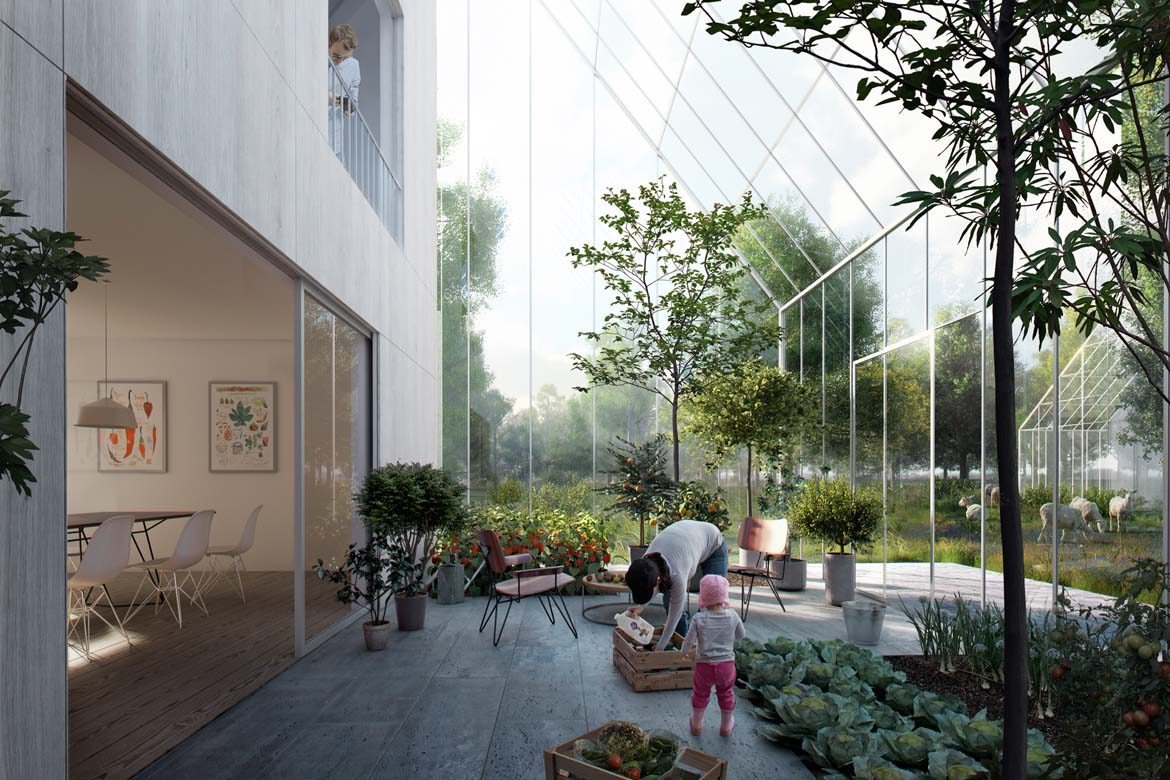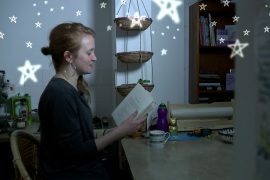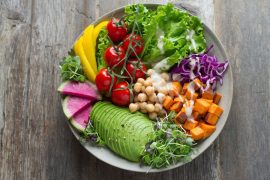By Hannah Schenker
If you know anything about the Dutch, it’s that they are incredibly innovative and creative when it comes to where and how they live. This story is no exception.
Just outside of Amsterdam in an area called Almere, a new neighbourhood is being constructed. One where you can gather your eggs from the chicken coop, pick your veggies from the greenhouse attached to your house and easily compost all your waste. Sounds like a natural kind of life, doesn’t it, and one that is appealing to more and more people as the world’s resources become stretched and the future unpredictable.
ReGen Villages, a real estate development company, have a vision to create small, self-sufficient communities around the world, and this will be their first one, aiming to be completed in 2018.
“Regenerative means systems where the output of one system can actually be the input of another,” says ReGen’s founder, James Ehrlich.
So how does it work? Here is what they say.
“In ReGen villages, household food waste is composted and fed to flies, which in turn feeds fish, which then fertilizes aquaponic gardens (multi-layered systems that combine fish farming and hydroponic agriculture, with plant roots submerged in nutrient-rich solution rather than soil). Those aquaponic farms grow produce for residents to eat, as do seasonal gardens, which are be fertilised by waste from livestock raised to feed residents. Rainwater is harvested and filtered for use in the farms and gardens, and on-site solar panels power the homes.”
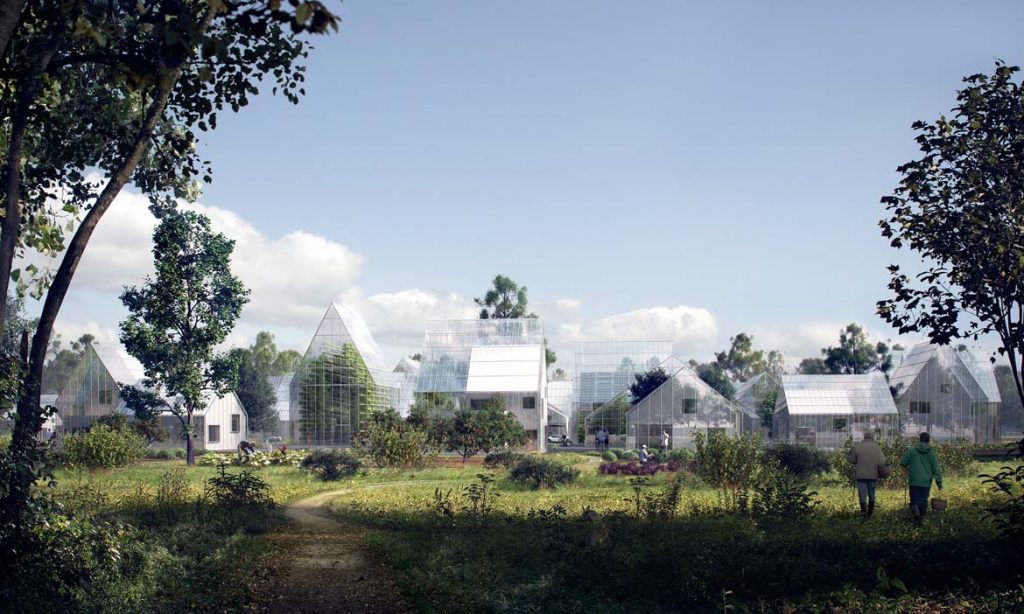
“Each completed village will house 100 families on about 50 acres. Each family’s house will have an attached greenhouse for growing personal crops, and the village’s communal farms and livestock will be managed and run by ReGen staff. Individuals can pitch in their labour as a way to lower the monthly fees homeowners pay on top of their mortgages. (In the Almere community, Ehrlich expects that cost to be around $560.)”
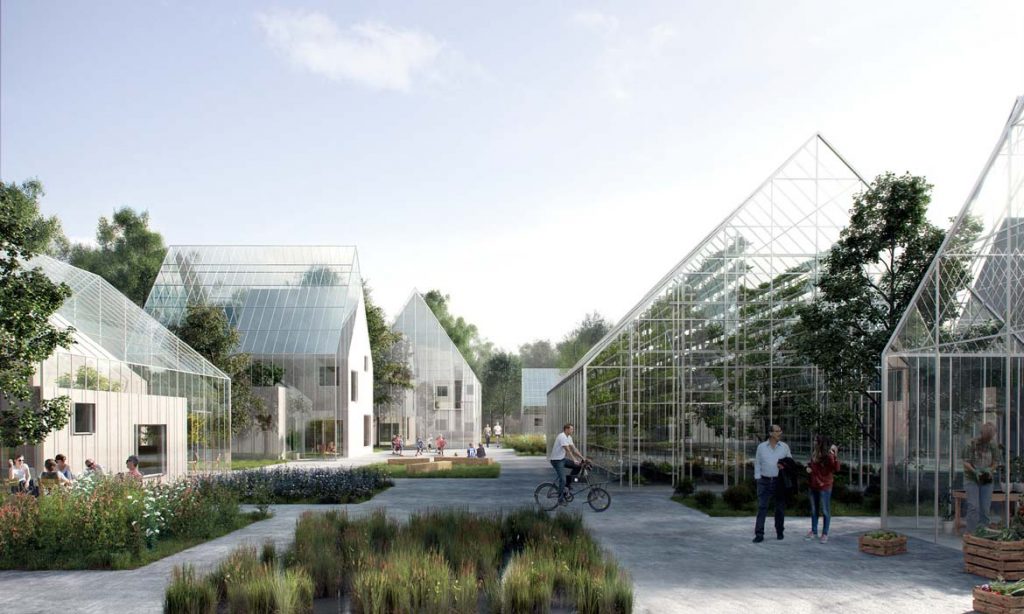
“It’s this concept that the way you look at a subdivision is edible, so you walk through the path and there’s berries and fruit trees and nuts and spices and all kinds of things to enjoy,” Ehrlich says. “We don’t do lawns, we don’t do golf courses or tennis courts. That’s a good place to grow food, so we’re going to grow food there.”
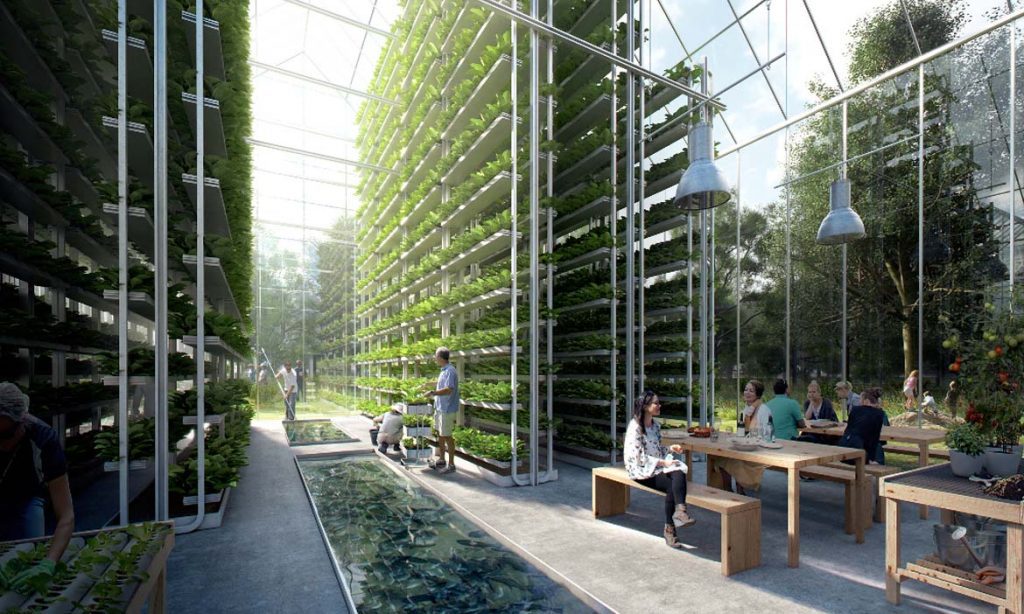
They’re referring to this as the “Tesla of eco-villages” because it will allow people to live off-grid, but not without the benefits of technology as we can utilise it today.
“The villages will also use sensors and technology to monitor energy use, farming efficiency, and living patterns, and send that data to the cloud so villages in similar geographic regions can learn from each other. The strategy is similar to the way Tesla uses machine learning to analyse data gathered from the autopilot systems in its cars.”
For the full article head over to the Business Insider.
Hannah Schenker is a freelance writer, editor and regular contributor to The Natural Parent Magazine. She lives with a touch of magic in Golden Bay, New Zealand.

